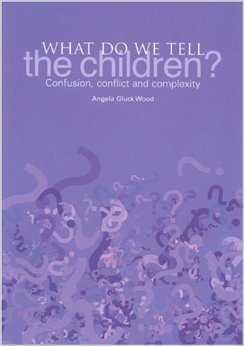
What Do We Tell the Children? by Angela Gluck Wood
Confusion, conflict and complexity.
Teaching is not just telling. Education, properly understood, involves a process of guided development in every possible direction. The educated person wants to know and doesn't assume that they know it all already. In short, to have an enquiring mind. Simply feeding children with "facts", often slanted with the feeder's opinions, which was thought sufficient in Victorian times, is the opposite of what is required. Sadly, it is still practised today in some quarters.
On the other hand, if young people are allowed to develop without some guidance, they will be subjected to received wisdom fed to them daily by millions of pounds worth of advertising, media distortions and "It is well known that...". That is why trained adults must intervene to encourage them to try and work things out for themselves. A little bit of iconoclasm works wonders.
The skilled teacher develops means of arousing the child's interest. There is a whole range of teaching aids to help them, texts, illustrations, electronics and so on. Understanding the society in which they live and how they should behave in it should be the main element in educating our future citizens.
This book is an outstanding example of what is available in this central task. It is full of texts, pictures, suggestions of all kinds. Its purpose is not to "tell" but to indicate the many possible answers to life's questions. Stories, reports, intriguing dialogues, images, are followed by questions which make the pupils think. Skilfully handled, this book can help to capitalise on the teacher's own initiatives and encourage the youngsters to think for themselves and not to rely on parroting the teacher's views.
Yes, there is information but from many different angles. Its intention is to rouse the child's desire to find out more.
Highly recommended